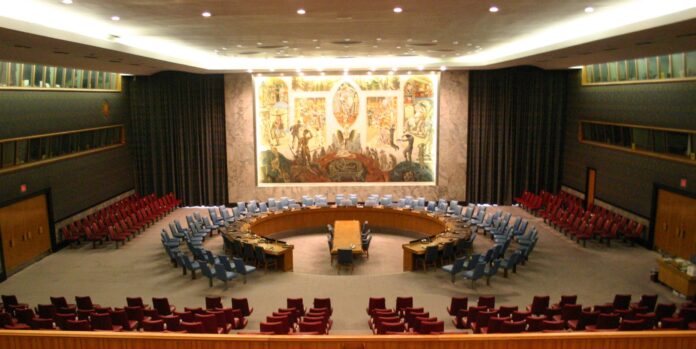Shiv R. Jhawar, MAS, EA, CA
The urgent need for United Nations Security Council (UNSC) reform is crucial in today’s world, as it offers a path to achieving global peace. The United Nations (UN) was established in 1945 after the devastating effects of World War II. The primary goal of the UN was to prevent future wars and promote international cooperation. The UNSC, as a part of the UN, plays a vital role in maintaining global peace and security.
Urgent need of UNSC reform
The UN Charter gives the UNSC the main responsibility for international peace and security. The UNSC can pass resolutions that are legally binding on all UN member states.
Under the UN Charter’s Article 2(4), it is illegal for one country to take over another country’s territory by force or threat of force. However, its practical application faces challenges due to the structure and dynamics of the UNSC.
The veto power held by the five permanent members of the 15-member UNSC—China, France, Russia, the UK, and the US—can impede the UNSC’s effectiveness, as demonstrated when Russia used its veto on February 25, 2022, to block a resolution against its Ukraine attacks. Despite receiving ten “yes” votes, the single “no” vote from Russia was enough to quash the resolution (4 abstained: Brazil, China, Gabon, and India). Is this truly democratic?
Similarly, on December 8, 2023, the United States used its veto to obstruct a resolution calling for an immediate humanitarian cease-fire in the Israel-Hamas conflict. Despite support from 13 Security Council members, the sole “no” vote from the United States (the UK abstained) resulted in the resolution’s failure. This is unacceptable to conscience-driven individuals worldwide. Such incidents illustrate the limitations of the UNSC when the interests of one nation clash with global concerns.
In a Time article published in May 2022, Andriy Yermak, chief of Ukraine’s presidential office, poignantly argued, “The U.N. is unable to work effectively. The Security Council is in need of reform.” This sentiment echoes the frustrations of many nations and observers who have been calling for UNSC reform for years now.
Proposal for a Representative UNSC
The Noble World Foundation (NWF) proposes a simple reform for the UNSC: changing membership from individual nations to regional unions. This simple reform could significantly improve the effectiveness of the UNSC.
The UNSC currently operates with five permanent members holding exclusive membership and veto power. However, the NWF proposes giving regional unions membership and veto power instead of individual nations. This proposal aims to democratize the UNSC by involving more nations in global decisions. The UNSC would decide the number of regional unions, which could stay at five or change as needed.
It is worth noting that the UNSC already follows a regional representation policy for selecting its non-permanent members. It divides the world into five regions: the African Group, Asia and the Pacific Group, Eastern European Group, Latin American and Caribbean Group, and Western European and Others Group. Extending this regional representation to the selection of permanent members is logical, as upholding international peace and security involves both permanent and non-permanent UNSC members.
By empowering regional unions with permanent membership and veto powers instead of individual nations, we can create a world where every nation has an equal voice in global affairs, regardless of its size or power.
UN membership for regional unions
Article 4 of the UN Charter confines membership to sovereign states, emphasizing sovereignty. However, historical precedents suggest extending membership to regional unions.
The dissolution of the Soviet Union led to the emergence of 15 new sovereign states, each gaining UN membership. This fundamental principle underscores the UN’s acceptance of newly sovereign entities resulting from division, which can also be applied to regional unions pooling their sovereignties. Division and unification are interconnected processes.
The UN’s adaptability was evident in the dissolution of the Soviet Union in December 1991. Instead of requiring formal Charter amendments, the UN recognized the changing global diplomatic landscape and allowed Russia to succeed the Soviet Union within the Security Council without amending the Charter.
The European Union (EU) stands as a unique entity that does not fundamentally differ from its sovereign constituent nations. Rather, the distinction is one of degree rather than kind. Therefore, there should be no barrier for the EU or other regional unions to seek UN membership.
Revolutionary Hierarchical System
Central to NWF’s proposal is the establishment of a hierarchical system where nations communicate their concerns to regional unions. These regional unions, in turn, act as intermediaries between individual nations and the UNSC.
By involving regional unions, we create a platform for nations to address conflicts at a regional level. This approach allows for a more localized understanding of the issues at hand, as regional unions are likely to have a better grasp of the unique dynamics and challenges within their respective regions.
Regional Unions: The Shield Against Conflicts
The Russia-Ukraine crisis stands as a stark reminder of the devastating consequences that conflicts can bring, not only to the nations directly involved but to the entire global community. This crisis, however, could have potentially been prevented if a regional union akin to the European Union had been in place in Eastern Europe prior to its eruption.
Imagine a scenario where there was a regional union in place, much like the EU, that fostered cooperation and unity among the Eastern European countries. In such a situation, decisions would be made collectively, with each member state having a say in the matters that affect the region as a whole. This would have prevented any one country from imposing its will or vetoing important decisions.
A regional union would have served as a diplomatic avenue for resolving disputes, prioritizing dialogue and negotiation over resorting to military action.
It is crucial to have a news media free from government interference. Reporters need the freedom to investigate and report without fear, acting as watchdogs on government activities and leadership decisions.
Franklin Roosevelt, the chief architect of the UN Charter, foresaw the need for continuous evolution. He remarked, “No plan is perfect. Whatever is adopted will have to be amended over the years.” In today’s global circumstances, this evolution is not merely necessary; it is an undeniable moral imperative. It is a call for the UNSC to adapt and better serve the global community in its pursuit of lasting peace and security.
NWF urges political leaders to recognize the potential of regional unions in conflict prevention and support their membership within the UNSC. The words of Yogananda Paramhansa (1892–1952), one of the greatest spiritual masters of India, resonate profoundly: “Wars are bound to go on until the United States of Europe and the United States of Asia are evolved, to prepare the way for the United States of the World, with God guiding all nations.” This profound statement reflects the NWF’s conviction that through the evolution of unified regions and a unified world, driven by a higher purpose, wars can ultimately be ended.
About Noble World Foundation: Noble World Foundation (NWF) is a 501(c)(3) nonprofit organization focused on promoting peace and understanding globally. NWF aspires to cultivate a global environment characterized by non-violence and respect for all. Founded in 2004, NWF is based in Chicago, USA.Visit nobleworld.org for more information. Copyright © 2023 Noble World Foundation)







